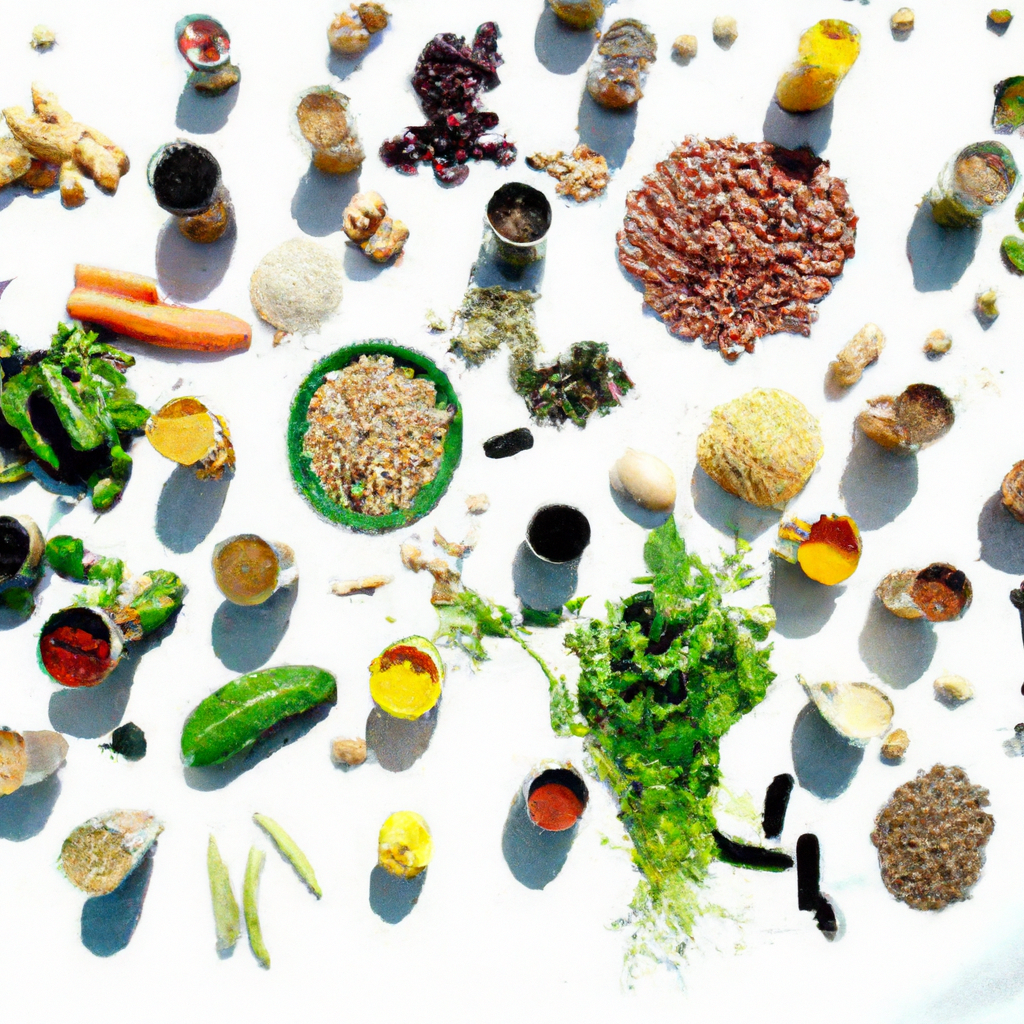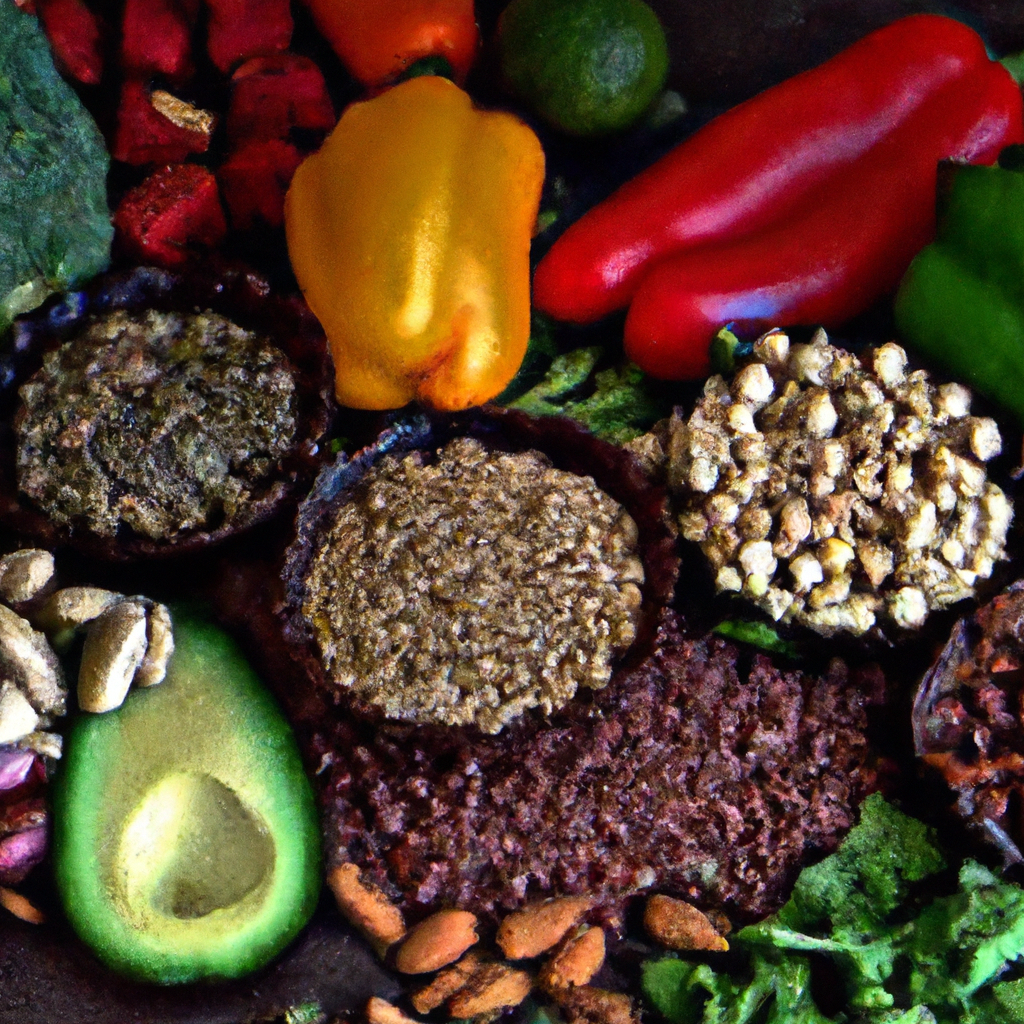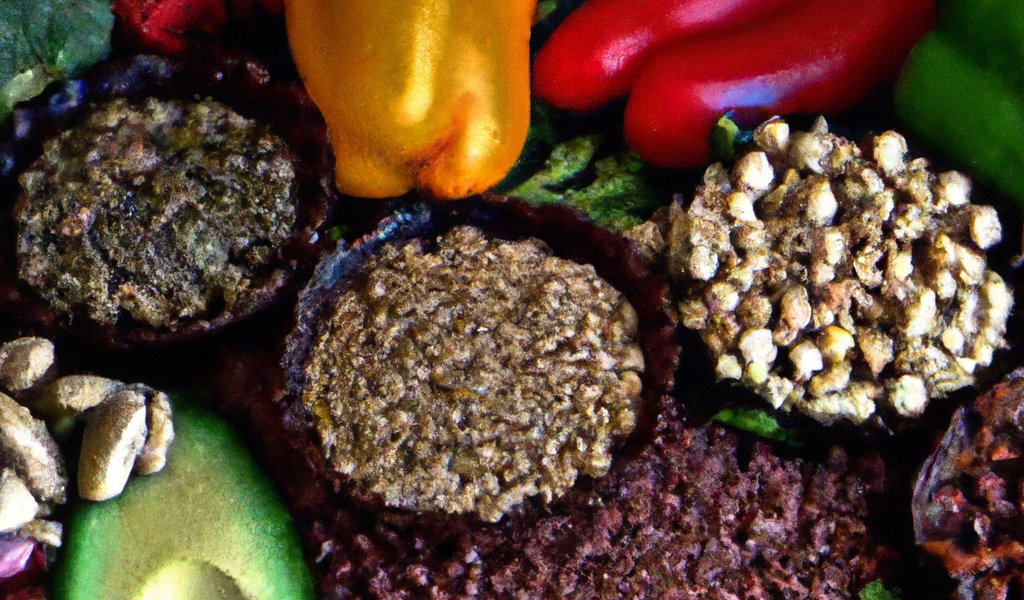Essential Plant-Based Proteins For Vegans And Vegetarians
Looking to incorporate more plant-based proteins into your diet as a vegan or vegetarian? Look no further! This article will guide you through a variety of essential plant-based proteins that are not only delicious but also packed with nutrients. From versatile options like tofu and tempeh to nutrient-rich legumes like lentils and chickpeas, you’ll discover a wide range of plant-based proteins to help you meet your dietary needs. Say goodbye to boring salads and hello to vibrant, flavorful meals that will nourish your body and satisfy your taste buds.

Soy-based Proteins
Tofu
Tofu is a staple in plant-based diets and is made from soybeans. It is a versatile ingredient that can be used in various dishes, making it a popular choice for vegans and vegetarians. Tofu is rich in protein, containing all the essential amino acids that the body needs. It is also a good source of iron, calcium, and magnesium.
Tempeh
Tempeh is another soy-based protein that has gained popularity among vegans and vegetarians. Made from fermented soybeans, tempeh not only provides protein but also contains probiotics, which are good for gut health. It has a nutty flavor and a firm texture, making it a great choice for adding substance to sandwiches, stir-fries, and salads.
Edamame
Edamame, young soybeans, are not only delicious but also packed with protein. They are commonly boiled or steamed and make for a tasty snack or addition to salads and stir-fries. Edamame also contains fiber, vitamins, and minerals, making it a nutritious choice for plant-based eaters.
Soy milk
Soy milk is a popular dairy milk alternative for vegans and those with lactose intolerance. It is made from whole soybeans and provides a good amount of protein. Soy milk is often fortified with calcium and vitamin D, making it a suitable replacement for dairy milk in terms of nutritional value. It can be used in smoothies, coffee, or as a substitute in recipes that call for cow’s milk.
Legume-based Proteins
Chickpeas
Chickpeas, also known as garbanzo beans, are a versatile legume that is commonly used in various cuisines worldwide. They are packed with protein and dietary fiber, making them a filling and nutritious addition to salads, stews, or as the base for homemade hummus. Chickpeas also contain iron, folate, and other essential minerals.
Lentils
Lentils are a nutrient-dense legume that comes in various colors, including green, brown, and red. They are rich in protein and fiber, making them a great choice for a plant-based diet. Lentils can be cooked and added to soups, stews, or salads. They are also a good source of iron, potassium, and folate.
Black beans
Black beans are a popular legume commonly found in Latin American cuisine. They are not only delicious but also provide a good amount of protein and fiber. Black beans can be used in a variety of dishes such as soups, stews, tacos, or salads. They are rich in minerals like magnesium, potassium, and folate.
Kidney beans
Kidney beans, named for their shape, are another legume that offers protein and fiber. They are commonly used in chili recipes, soups, and salads. Kidney beans also provide iron, potassium, and folate. Including kidney beans in your diet can help boost your protein intake while also adding a variety of nutrients to your meals.
Whole Grain-based Proteins
Quinoa
Quinoa is often referred to as a superfood due to its high protein content and numerous health benefits. It is a complete protein, meaning it contains all nine essential amino acids. Quinoa is also a good source of fiber, iron, magnesium, and phosphorus. It can be used as a base for salads, added to soups, or enjoyed as a side dish.
Brown rice
Brown rice is a whole grain that provides protein and fiber. It is less processed than white rice, retaining the bran and germ layers that contain valuable nutrients. Brown rice is a staple in many cuisines and can be enjoyed as a side dish, stir-fried, or used as an ingredient in various recipes.
Buckwheat
Despite its name, buckwheat is not a wheat grain but a pseudocereal. It is naturally gluten-free and provides protein, fiber, and essential minerals. Buckwheat can be cooked and added to salads, used in pancakes or as a substitute for rice. It also contains antioxidants and has been linked to various health benefits.
Oats
Oats are a nutritious whole grain that offers protein and fiber. They are a popular breakfast option and can be enjoyed as oatmeal, muesli, or in baked goods like cookies and granola bars. Oats also contain beta-glucan, a type of soluble fiber that has been shown to lower cholesterol levels and promote heart health.

Nuts and Seeds-based Proteins
Almonds
Almonds are not only a tasty snack but also a good source of plant-based protein. They also contain healthy fats, fiber, and various vitamins and minerals. Almonds can be enjoyed on their own, used as a topping for salads or oatmeal, or blended into almond butter for a delicious spread.
Peanuts
Peanuts are a popular legume that provides protein, healthy fats, and fiber. They are often enjoyed as a snack, used in peanut butter, or added to salads and stir-fries. Peanuts also contain vitamins and minerals such as vitamin E, magnesium, and potassium.
Chia seeds
Chia seeds are a tiny powerhouse of nutrition, offering protein, healthy fats, and fiber. They are also rich in omega-3 fatty acids, making them a great addition to a plant-based diet. Chia seeds can be sprinkled on top of yogurt, added to smoothies, or used as an egg substitute in baking recipes.
Flaxseeds
Flaxseeds are another excellent source of plant-based protein, as well as omega-3 fatty acids and fiber. They can be ground and added to smoothies, oatmeal, or used as an egg substitute in baking. Flaxseeds also contain lignans, which have antioxidant properties and may have various health benefits.
Seitan
Seitan, also known as wheat meat or wheat gluten, is a protein-rich food made from gluten, the main protein in wheat. It has a meat-like texture and is often used as a meat substitute in vegetarian and vegan dishes. Seitan is particularly high in protein and can be used in stir-fries, stews, or grilled as a meat alternative.
Hemp-based Proteins
Hemp-based proteins, derived from hemp seeds, are becoming increasingly popular in the plant-based community. They offer a complete source of protein, containing all nine essential amino acids. Hemp protein powder can be used in smoothies, baked goods, or added to oatmeal for an extra protein boost. Hemp seeds can also be sprinkled on salads or enjoyed as a snack.
Pea-based Proteins
Pea-based proteins are derived from yellow peas and are a great plant-based protein source. They are particularly high in branched-chain amino acids, which are essential for muscle recovery and growth. Pea protein powder can be used in protein shakes, added to baked goods, or used as a protein boost in various recipes.
Spirulina
Spirulina is a blue-green algae that is rich in protein, vitamins, and minerals. It is often consumed in powder or tablet form and can be added to smoothies or used as a natural food coloring. Spirulina is packed with antioxidants and has been claimed to have various health benefits, including boosting immunity and reducing inflammation.
Nutritional Yeast
Nutritional yeast, commonly known as “nooch,” is a deactivated yeast that is often used as a cheese substitute in plant-based recipes. It has a cheesy, nutty flavor and is a great source of protein, vitamins, and minerals. Nutritional yeast can be sprinkled on popcorn, pasta, or used as a seasoning in sauces and dressings.
Vegetable-based Proteins
Broccoli
Broccoli is a nutritious vegetable that offers a surprising amount of protein, along with fiber and essential nutrients. It is often enjoyed steamed, roasted, or added to stir-fries and salads. Broccoli also contains antioxidants and is rich in vitamins A, C, and K.
Spinach
Spinach is a leafy green vegetable that provides a good amount of protein, along with iron, calcium, and other essential minerals. It can be enjoyed fresh in salads, sautéed, or added to smoothies for a nutrient boost. Spinach is also rich in antioxidants and contains vitamins A, C, and K.
Kale
Kale is another leafy green vegetable that is packed with protein and other important nutrients. It can be enjoyed raw in salads, cooked in soups or stir-fries, or baked into crispy kale chips. Kale is high in fiber, antioxidants, and vitamins A, C, and K.
Brussels sprouts
Brussels sprouts are small, nutrient-dense vegetables that offer protein and other essential nutrients. They can be roasted, sautéed, or enjoyed steamed. Brussels sprouts are rich in fiber, vitamins A and C, and contain antioxidants that may help protect against chronic diseases.
Mushrooms
Mushrooms are a versatile vegetable that provides a modest amount of protein. They can be sautéed, grilled, or used as a meat substitute in various dishes. Mushrooms also offer important nutrients, such as potassium, selenium, and vitamins B and D.
In conclusion, plant-based proteins are abundant and diverse, providing ample options for vegans and vegetarians to meet their protein needs. From soy-based proteins like tofu and tempeh to legumes like chickpeas and lentils, there is a wide range of plant-based protein sources to choose from. Whole grains such as quinoa and brown rice, as well as nuts and seeds like almonds and chia seeds, also offer protein and other valuable nutrients. Additionally, seitan, hemp-based proteins, pea-based proteins, spirulina, and nutritional yeast can further enhance the protein content of a plant-based diet. Lastly, vegetables such as broccoli, spinach, kale, Brussels sprouts, and mushrooms provide not only protein but also a host of other essential nutrients. By incorporating these essential plant-based proteins into your diet, you can ensure that you are meeting your nutritional needs while enjoying a variety of delicious and nutritious meals.


Pingback: Understanding The Role Of Proteins In Weight Loss
Pingback: The Vegan Blueprint For Optimal Nutrition